|
“Seek God and you will find God. Seek God in all things and you will find God in all things. Seek God always and you will find God always.” – St. Vincent Pallotti
Do we live our lives seeking God or realize that God is seeking us? God is indeed seeking us. In fact, we have been found in our Baptism. We enter into the mission of the Son who was sent by the Eternal Father into the world to save us. We are co-responsible for this mission and are in “holy cooperation” with the Most Blessed Trinity. Therefore, we are sent by Christ as his apostles or missionary disciples into the Church and the world to revive faith and rekindle charity. We accompany other seekers in becoming found in Christ and through his Church. Today is the 170th anniversary of the death of St. Vincent Pallotti. It is also his feast day. He believed, taught, and lived the ideals of accompaniment, co-responsibility, and holy cooperation mentioned above. His foundation, the “Union of Catholic Apostolate, a gift of the Holy Spirit, is a communion of the faithful who, united with God and with one another in accordance with the charism of St. Vincent Pallotti, promote the co-responsibility of all the baptized to revive faith and rekindle charity in the Church and in the world, and to bring all to unity in Christ” (General Statutes, 1). This means that lay people, those in consecrated life, and clergy are in collaboration with one another, not only in the Union, but also in the Church and with those of good will in the world. Each person has a role. Each person is responsible. Each person shares in the mission of the Church in spreading the Gospel. Pope Francis recently wrote about this shared mission in his Apostolic Exhortation, Christus Vivit. He was writing about ministry with young people, but these words can be extended to all the baptized. “Youth ministry has to be synodal; it should involve a ‘journeying together’ that values ‘the charisms that the Spirit bestows in accordance with the vocation and role of each of the Church’s members, through a process of co-responsibility... Motivated by this spirit, we can move towards a participatory and co-responsible Church, one capable of appreciating its own rich variety, gratefully accepting the contributions of the lay faithful, including young people and women, consecrated persons, as well as groups, associations and movements. No one should be excluded or exclude themselves’” (Christus Vivit, 206). For co-responsibility to be truly a lived reality there is much more work to be done. St. Vincent Pallotti was visionary and prophetic in his understanding, but the work was unfinished. Let us not wait. Instead, let us "remember that the Christian life is one of action; not of speech and daydreams. Let there be few words and many deeds and let them be done well." Blessed feast day of St. Vincent Pallotti! May the Charity of Christ urge us on!
0 Comments
We often associate tree climbing with child’s play—it’s an action that requires flexible limbs and a daring outlook that only winks at the possibility of risk. I can’t imagine it being much different in the ancient world. To see a man quickly climbing up a tree just to get a glimpse of another must have been perceived as childish and perhaps a little embarrassing. The Gospel today speaks of a short-statured man who grew quickly in the eyes of God. Zacchaeus may be chuckled at for his stature, but he can be looked up to as a model of faith in action. At the time Christ comes to his town of Jericho, Zacchaeus is not an upstanding man. But something about Jesus calls to him, so much so that Zacchaeus is willing to do anything—even climb up a tree—just to catch a glimpse of him. The beginning of the Gospel mentions that Jesus “intended to pass through the town.” However, upon encountering Zacchaeus, he stops, calls him by name, and accompanies him to his home to dine with him. And Zacchaeus’ response is joy. This joy comes from a newfound generosity blooming in Zacchaeus’ heart. The man who once extorted his community responds quickly and tells Jesus he will give away half his possessions to the poor. Furthermore, he pledges to repay—four times over—anyone he has extorted. The man, called a sinner by the rest of the town, has been called by name by Christ and responds with faith in action. He has experienced conversion, and his actions result in Christ saying, “today salvation has come to this house.” Is this how we await Christ, so longingly that will we do anything just to glimpse him? Or are we off somewhere else in the town of Jericho, distracted or lukewarm to the knowledge that Christ walks in our midst? What if every member of the Church—the clergy, religious, the laity—awaited Christ with the expectation of Zacchaeus? It is this desire and willingness that has disposed his heart to be receptive to God’s work. It is a small glimmer of the receptivity of Mary when she gave her fiat at the Annunciation. And through this, God can work miracles—the birth of a Savior from a virgin womb, the conversion of a short-statured, greedy sinner. As a Church, we often go back and forth between roles. We are the sinful people called to encounter Christ and bring his mercy and joy to the world, but we can also play the role of Christ in our work of evangelization. Christ—who calls Zacchaeus by name and is not afraid to dine with sinners. Christ—who changes his plans in order to minister to those right in front of him. Christ—who comes “to seek and to save what was lost.” As Pope Francis said in his closing homily at the end of the Synod on Young People, the Faith, and Vocational Discernment, “That is how God operates. He gets personally involved with preferential love for every person. By his actions, he already communicates his message. Faith thus flowers in life.” And what are Zacchaeus’ actions if not faith flowering? This flowering faith is what Pope Francis and the Synod Fathers are reminding the Church of once more as the Synod has come to a close. Almost a month out from this historic event, we are called to ponder deeply the prompting of the Holy Spirit and, like Zacchaeus, seek an encounter with Christ. It is this encounter with a personal God who calls us by name that will enable us to go out, as Zacchaeus did, with generous joy to repay our debts and minister to the poor and lowly. Let us call our brothers and sisters on the fringes by name. Let us put aside our preconceived notions of ministry and evangelization and answer to the needs of the moment. Let us sit and dine with our brothers and sisters. “Let us ask ourselves whether, as Christians, we are capable of becoming neighbours, stepping out of our circles and embracing those who are not ‘one of us’, those whom God ardently seeks.” Today, let us carry the light of Christ in our hearts and imitate him in seeking and saving what was lost. What does it mean to be a faithful Catholic? We are often quick to answer this question with things like Mass attendance, frequent confession, respect for all life, serving the poor and vulnerable, and advocating for those without their own voices. In other words, we might answer this question with action verbs, or phrases that suggest doing. However, identifying as a Catholic requires just as much being as doing; as Catholics, we are called to be in right relationship with God, others, and ourselves. Being in right relationship means that in all parts of our lives, there is an order to what we do, love, desire, value, and move towards; this order is one that is rooted in God, sustained by constant conversion to him, and ultimately fosters lasting communion with him in this life and the next. There are many things in our lives that prevent us from being according to this pattern and order. For many of us, things like tragedy, addiction, animosity, violence, mental illness, polarization, and trauma have weakened our trust in God and the goodness of others. Our hearts can be exhausted by divisions within our own families, numerous transitions in our careers or geographical locations, failed plans and dreams, and the restlessness that comes with the seasons of waiting in our lives. Sometimes, we find that our hearts have become worn down and afraid in all that life has asked us to carry. Like illness or a disease, leaving these wounds of the human condition untreated poses a hazard to our being. Trying to live out our faith without seeking some form of psychological and emotional healing for these wounds causes our views of ourselves, God, and others to become distorted, preventing order and harmony from forming in our lives. Untreated emotional and psychological injuries and pain show themselves in the ways in which we seek to serve God and others. We sometimes put up “walls” around our hearts and push others away because we’ve been so damaged by close relationships. We might become obsessively self-interested because we see our value and dignity only in relation to our careers and material success. We might see God as angry, malevolent, and seeking retribution because we haven’t forgiven ourselves for our past sins or mistakes. All of these feelings and responses are part of being human. Thankfully, because they are part of being human, they can be healed and redeemed. This is why it is crucial to form ourselves not only spiritually, but also through emotional and psychological healing. The parts of us that have a large role in being - our emotions, mental state, and psychological health - are invaluable to living out our vocations to holiness. We cannot give life, love, and mercy to others if we don’t first have a sense of those things within our own selves. Certain tools can help with this type of human formation: conversations with trusted and wise friends, support from a mentor, spiritual direction, counseling, and therapy. As Catholics, it is important to reflect often on the journey of our lives, look at the cuts and scrapes we’ve acquired along the way, and participate in God’s healing by seeking tools that foster our ability to be. It is through the nurturing of our being that we are then able to bring life through our doing. As Catholics, we are part of a Church that calls us to “go forth” to serve God and others. Individually within our hearts, what kind of place are we “going forth” from? One that is broken and acts out of insecurity, self-interest, anger, or pain? Or one that is undergoing healing, characterized by a desire to live in the freedom of God with others? What kind of healing might we be called to seek?
For much of the past year my work as an auditor has had me traversing the country each week by plane, train, and automobile to attend to various client needs. The destinations often change depending on the assignment; one week it might be Philadelphia and the next it might be Los Angeles, one month it could be Denver and the next Minneapolis. While exploring new cities and meeting new people is exciting, I’ve also found incorporating the logistics and time it takes to go from point A to point B each trip adds another layer of exhaustion onto what is usually an already busy schedule. On a recent Monday morning flight, while praying Morning Prayer, I came across this reading from Isaiah 55:6,8-9; Seek the LORD while he may be found, call upon him while he is near. For my thoughts are not your thoughts, nor are your ways my ways—oracle of the LORD. For as the heavens are higher than the earth, so are my ways higher than your ways, my thoughts higher than your thoughts. I looked out my window at the view from 35,000 feet and saw an expanse of plains surrounding small midwestern towns that eventually morphed into suburbs and cities. In each locale there were thousands of people going about their day, unaware of the part they played in this picture I saw. “For as the heavens are higher than the earth, so are my ways higher than your ways.” I paused and thought about how God’s view of our own lives must look something like this. We, just like the people on the ground, go about our day unaware of the part we play in the bigger picture He sees. So often I find that I allow the stresses to become my sole focus of the day: a difficult audit assignment, a cancelled flight, maintaining relationships with friends and family while on the road, etc. While these daily stresses need our attention, in the big picture of our lives they are small blips on the radar that we can’t allow to distract us from seeking the Lord. Ultimately it is our continuous pursuit of God that allows us to press through our daily challenges, large or small, trusting in the knowledge that He has the view of our lives from 35,000 feet and will never fail us. Questions for Reflection: Is there an instance or time in your life when things didn’t go according to your plan? Has God’s way of doing things in your life ever proven more fruitful or beneficial than you could have anticipated? This year, I tried something new for Lent. Instead of giving up sweets or the snooze button on my alarm clock, I felt God calling me to spend more time in prayer with a regular reflection routine. I am someone who has to constantly fill my schedule with things to do and places to go—I knew God was asking for silence in my life. Rather than making an unrealistic commitment during Lent, I selected something I could add to my already established morning and evening routines. I bought a Lenten journal that included a Bible verse and reflection with a corresponding prayer and question for free response. There were a few days I missed an entry and would make it up, but overall I felt I accomplished my Lenten promise and journey. The biggest thing I learned from this Lenten walk with Jesus was the idea of progress and not perfection. As Matthew Kelley says, “we’re imperfect beings striving for perfection, and we have to learn to celebrate our progress.” Becoming more aware of what went on in my day and noticing where I was or was not being my best self made me more aware of God’s presence in my life. I could more easily notice when something in my day was a gift or where He was visibly working on something in my life. As Lent progressed, I found myself yearning to know God in my life more and more. I went to Adoration more, sought out additional reflections through Kelley’s Dynamic Catholic resources, and attended my local women’s group more frequently. I think that’s what Lent should be: being on fire for your faith in God. Our Lenten practices shouldn’t just last for 40 days, but should be 365 days a year—though perhaps not to such a high degree as during Lent. Since Easter, I have continued to journal and have started a gratitude list I add to each day. Here are some thoughts regarding seeking progress and not perfection that I have found helpful to continue working on after Lent:
Question for Reflection: What are some ways your past Lenten journeys have changed your spiritual life after Easter? When I was at a recent Bible study with friends, we prayed about and discussed the passage from Matthew 14:22-33 – the story of Jesus calling Peter out of the boat to walk to him on water. As Peter sees the wind and waves around him, his trust in Jesus begins to falter and he starts to sink. When he cries out for help, Jesus immediately catches Peter, saying, “Oh you of little faith, why did you doubt?” In many ways, we, too, are like Peter: cautiously trusting the Lord, but when tested in the chaos, we learn our trust isn’t as strong as it should be. This is where we can look to St. Bartholomew for guidance. St. Bartholomew (also known as Nathanael), whose feast day is August 24th, was one of the 12 Apostles mentioned in the Synoptic Gospels. While little is known of St. Bartholomew, we see his true personality in John 1:43-51. The apostle Philip was a friend of Bartholomew, an Israelite. As Philip tells Bartholomew that he, Andrew, and Peter found the Son of God, St. Bartholomew responds, “Can anything good come from Nazareth?” Later, Jesus says of him, “Here is a true Israelite. There is no duplicity in him.” Jesus also says he saw Bartholomew under a fig tree before Philip called him, leading us to understand Bartholomew was in prayer with the Lord. St. Bartholomew immediately answers, “Rabbi, you are the Son of God; you are the King of Israel.” This passage reveals St. Bartholomew’s blunt honesty. He is open about his doubts of any good coming from Nazareth, but does not hesitate in his belief when Jesus reveals himself. This is why Jesus calls St. Bartholomew an Israelite with no deceit. Through St. Bartholomew, we see qualities that Jesus praises: honesty, truth seeking, sincerity and thoughtfulness. These good attributes allow Jesus to come into St. Bartholomew’s life and build trust with him. Likewise, St. Bartholomew is able to open up to new perspectives and ruminations on spiritual matters. In Matthew 5:8, we learn from the Beatitudes, “Blessed are the clean of heart, for they will see God.” St. Bartholomew is a model to us of this purity of heart. When we seek truth, we can more clearly see God and respond to his call. Living apart from the truth dims our relationship with God and our ability to hear his call. Dishonesty makes life more difficult for us to know the truth, which is built on trust. The Catechism of the Catholic faith says that “placing our trust in Christ’s promises and relying not on our own strength, but on the help of the grace of the Holy Spirit” enables us to become heirs in hope of eternal life. Ultimately, God is truth itself. We learn from St. Bartholomew’s example that we can come to know God better in reflection through prayer. To know God through prayer is to know truth and therefore trust. This open line of communication with God unlocks our minds to explore different perspectives and gives us the ability and willingness to overcome critiques, which is necessary for evangelization. Even in the above passage from Matthew 14:22-33, where Peter walks out onto the water, we learn at the very beginning of the story that Jesus found time to pray and reflect in solitude with his Father before meeting with the Apostles in the boat. St. Bartholomew’s prayer led him to truth. He trusted in God and then shared that truth with others in order to convert them to Christianity. After Jesus’ ascension, St. Bartholomew traveled farther than most of the other Apostles. He visited Syria, Ethiopia, India, and Armenia, preaching the Gospel and God’s word. It is believed St. Bartholomew was martyred in Armenia. May we learn to trust God through St. Bartholomew’s example! Where has the time gone? I’ve been asking myself this question over and over again throughout the past few days. Having just graduated from college, I find it quite surreal that my life is no longer dominated by the academic schedule. I almost feel as if I am a new person, having joined the “real world” as a young adult. It is exciting to have entered a new chapter in my life and exercise control over fulfilling my desires and goals in life. During major times of transition, I think it is beneficial to take the time to seriously reflect on all who have supported me along the way and up to where I am now: typing this after a day’s work at the office in a new city. As senior year drew to a close, I recalled moments not only of joy but also of sadness and difficulty. Remembering who it was that remained at my side during those moments of formation and struggle, and valuing their friendship and presence in my life, causes me to thank God for those college experiences. Those relationships caused me to glimpse the faithfulness and love of God. Sometimes, I can’t help but wonder whom I have touched with my own presence or friendship. As a human being, I am imperfect. I experience weakness. I worry. I have doubts and deficiencies. While these are important to acknowledge, I cannot waste time dwelling on them. In my shortcomings, my relationships with others may be strained, but there is also an opportunity to grow even closer to one another. Similarly, one’s waywardness is always ready to be met with God’s faithfulness: “If we are unfaithful he remains faithful, for he cannot deny himself” (2 Tim 2:13). We are called to model God’s faithfulness in our own friendships. The authenticity of such a relationship is made plain especially in times of difficulty. I like to recall Job’s friends who, upon seeing his experience of great loss, “sat down upon the ground with him seven days and seven nights, but none of them spoke a word to him; for they saw how great was his suffering” (Job 2:13). Similarly, “Two are better than one… If the one falls, the other will help the fallen one. But woe to the solitary person! If that one should fall, there is no other to help” (Eccl 4:9). There were many times throughout college that people “sat down upon the ground” with me and many times I did the same for others. I truly saw how “two are better than one,”—how we need one another to help us when we fall. Talking to my peers as graduation approached, I heard and shared thoughts of both excitement and apprehension. Graduation sometimes resembles the “real world” knocking on one’s door with a collection call. I agreed with this somber view until I attended a retreat where I heard it said that the “real world” touted by society was nothing more than a deprivation of what readily exists for the faithful: the Church. At every moment, God walks with us. He readily comforts us, listens to us, calls to us, and freely and completely offers His perfect love to us. While the world we live in can be unforgiving, rough, and fatiguing, let us recall Who walks beside us and never fails us. We are called to imitate this unfailing love and walk beside our brothers and sisters. Our lives are spent in pilgrimage seeking God. Along the way, we often encounter others who are seeking the same end. Sharing this pursuit, then, becomes a shared labor of faithfulness and strength. We are weak on our own, but together, as we experience in the Church, strength and comfort are found to help us journey on. As one of my friends reflected, “[T]he journey to heaven is not a solo trek. You seek to bring everyone with you. If one person falls, you travel to him or her, and help them get up, and you carry along together towards the destination. This is what God has entrusted us to do, to reveal such love as His love.” God is faithful, especially in times of great change. As I begin this new chapter of my life, I strive to reveal the faithful love of God to those I encounter. May we, at every moment, endeavor to do the same! Question for Reflection: How do you turn to God in times of transition? You may have heard this phrase or a deviation of it before: while St. Ignatius referred to, “Seeking God in all things,” St. Vincent Pallotti taught, “Seek God in all things, and you will find God in all things.” Both convey the same message. While this message can be an easy one to remember, putting it into practice is a different story—even Jesus’ disciples had trouble with this! If we look at the story of the disciples on the road to Emmaus, it was only after Jesus had traveled along the road with them, sat down, and broke the bread that they recognized Him (cf Luke 24:13-32). If the disciples could struggle to recognize Christ, how many times in our lives have we also failed to recognize Him in a person, place, or event?
This past summer, I undertook the great challenge of attempting to recognize Christ in my everyday life. Having been blessed with the opportunity to attend World Youth Day in Poland, I, for the first time, felt like I was truly experiencing a culture that was authentically Catholic. Everywhere I went, I found myself able to identify Christ present in my surroundings. Throughout the trip, I worried that the enthusiasm with which I found it easy, even second nature, to exhibit my faith would go out like a lamp when I landed and departed from my group in the US. I knew it did not have to, nor should be that way, but in the back of my mind this was how I felt. I was compelled to not make this happen. I knew I needed a community in which I could sustain and share the joy of seeking Christ in all things. Enter the Knights of Columbus Council of Catholic University. Having been recently elected Grand Knight of the Council, I knew I had many decisions to make, one of which included coming up with a theme for the upcoming fraternal year. While flying home from Poland, it dawned on me: what better theme than what I had just experienced? After making my suggestion to the chaplain and a few others, the theme of “Seeking Christ in All Things” was announced to the Council during our first business meeting in the fall semester. Following this announcement, the Council sought to incorporate the new theme into its fraternal programs, beginning with the reflection shared by the Council’s Lecturer and continuing with our Chaplain’s reflections. There was much discussion about our theme, “Seeking Christ in All Things.” Discussion is important, but as Knights, we must also give witness to our faith. The Knights at The Catholic University of America have sought Christ in our lives and invited others into this encounter with Him in various ways. Some examples that come to mind center around our weekly “Knights Mass” where, together with our campus community, we attend daily Mass once a week together. Afterwards, we pray the rosary together and invite others to join us. Knights from our Council also lead and are involved in numerous activities through our university’s campus ministry. These programs include a weekly homeless food run, tutoring at a local after-school program, and countless liturgies on campus and in our neighborhood in Washington, D.C. In addition, several members of our Council will be doing international and domestic mission trips during our spring break. You do not need to be a Knight of Columbus to encounter Christ or bring people closer to Him. As we begin Lent, I invite you to take the time to look for Christ in your life. Strive to pray wherever you are, not just in church on Sundays. Go volunteer and recognize Christ in those whom you serve. Look for the unconventional places that Christ may in your life. Find the beauty that is there and never let it leave your sight. Daniel Hackenjos serves as Grand Knight of the Knights of Columbus Council of Catholic University where he studies elementary education as an undergraduate. Some of the extensive spiritual formation programming of the CUA Knights is in the March 2017 edition of Columbia, the official magazine of the Knights of Columbus. "Good morning and welcome! Today, we celebrate the Xth Sunday in Ordinary Time. Please stand and join in singing hymn number…" Most of us will hear these words, or words very close to them, for over thirty Sundays a year. After the joyful season of Christmas, it can seem too ordinary, almost boring, to return to Ordinary Time in the Liturgical Year. Instead of the extraordinary stories of Christ's birth in the Incarnation, we've gone back to the Jesus stories many of us grew up hearing: Jesus healing lepers, chastising Pharisees, and preaching to crowds. While Jesus’ ministry is anything but ordinary, our familiarity with the stories of the Gospel often desensitizes us to their extraordinary depth and power. It’s much easier to see the seasons of Christmas and Easter, as well as Advent and Lent, as extraordinary. They're special seasons of the Liturgical Calendar, set aside to celebrate and reflect on the greatest mysteries of our faith: the Incarnation and the Passion and Resurrection of Christ. These liturgical times make us feel our faith in a more visceral way. There's nothing like the gut-wrenching Passion narrative or the beautiful story of the Nativity to set our hearts ablaze for Christ! But if our experience of the Christian faith was nothing more than an emotional high, we would never be able to see Christ in anything but the heavily emotional experiences. That's what Ordinary Time gives us: it sustains our faith between the emotional highs and lows of Christ's birth, death, and resurrection. It reminds us that God is often most present to us in our ordinary humanity. May we not forget that Christ himself lived ordinarily for thirty years as a carpenter’s son in Nazareth. It's in Christ's day-to-day ministry that He meets people where they are and experiences the human condition with them. When He forgave the woman at the well, it wasn't at a big celebration, but in the very ordinary act of gathering water. When He called Zacchaeus down from the sycamore tree, all He wanted to do was share a meal. When He flipped the moneychangers' tables at the Temple in anger, He was there for the weekly observance of the Sabbath. Ordinary Time isn't about the humdrum monotony of life. It's about the slow, incremental action of the Holy Spirit in our lives. It's about, as St. Vincent Pallotti said, seeking God in all things. Just as we get up every day and go to work, we are called to use Ordinary Time to get up every day and give our best to God. So what can we do to live Ordinary Time well? The options are endless! —Maybe you like studying Scripture, but don't know where to go deeper? Take a look at the practice of Lectio Divina. —If you feel a strong draw to the Liturgy, try attending Daily Mass once a week or following the Liturgy of the Hours. —Do you sense a call to serve more with more intentionality? Explore the needs in your community. It doesn't have to be a Church ministry to be service! After all, we're given the instruction to "Go forth!" at the end of every Mass. The beauty of our faith is that there are so many ways to experience God in our lives, to connect with Him and bring His message of love to the world. It doesn't matter which way we choose to work on our relationship with Him, so long as we do so with intention. A healthy challenge for us all might be to pick just one practice to begin making into a habit during Ordinary Time. May we invite God to shift our perspective on the “ordinary” and help us see His extraordinary presence and grace in our journey of faith! “The first end I propose in our daily work is to do the will of God; secondly, to do it in the manner he wills it; and thirdly to do it because it is his will.” – St. Elizabeth Ann Seton St. Elizabeth Ann Seton (1774-1821), whom we celebrate on January 4, holds the distinction of being the first native-born American saint. Looking back over her great achievements (which include planting the seeds of Catholic education in America and founding a religious order, the Daughters of Charity), what is so special and relevant about Mother Seton is how ordinary her holiness was. From Wall Street to Italy, from Baltimore to rural Emmitsburg, MD, Elizabeth initially lead a privileged life, but always remained humble and grounded. After becoming a widow with five children at only 28 years old, she eventually moved her young family to Emmitsburg and founded a religious order and Catholic school. After the death of her husband, her life was difficult, filled with personal trials and hardships. Yet, through all of it, she demonstrated constant dedication to discerning and pursuing the will of God, or, as she simply called it, “The Will.” In fact, it is through looking at how Elizabeth sought God’s will in the toughest moments of life that we stand to learn the most from her remarkable, yet ordinary life. Embracing Change “God, forgive what I have been, correct what I am, and direct what I shall be.” Humans are creatures of habit, which makes change a scary thing. God certainly called St. Elizabeth to change directions many times over the course of her life, even change her vocation! Elizabeth remained faithful and constant in the moment, while exercising abandonment to the will of God to respond freely as her circumstances changed. Elizabeth demonstrates how we do not become saints overnight, but grow through a day-by-day process of seeking forgiveness and correction every step of the way. Faithfulness in Failure “We know certainly that our God calls us to a holy life. We know that he gives us every grace, every abundant grace; and though we are so weak of ourselves, this grace is able to carry us through every obstacle and difficulty.” Growing up in a prosperous family, Elizabeth enjoyed a happy and fruitful marriage, blessing her with five children. Together with her husband William, to whom she was very much in love, they inherited a successful business on Wall Street. But in a short period of time, all that changed. William’s business failed and went bankrupt. Elizabeth knew success very early on, but learned firsthand the difference between success and faithfulness. As an American saint, Elizabeth powerfully challenges the American tendency to view outward success as an indisputable sign of God’s grace. The experience awakened in Elizabeth a newfound love of the poor, as well as a deeper understanding of the will of God in the midst of many obstacles and difficulties on the path to a holy life. Trust During Tragedy “The accidents of life separate us from our dearest friends, but let us not despair. God is like a looking glass in which souls see each other. The more we are united to Him by love, the nearer we are to those who belong to Him.” Not long after her family went bankrupt, Elizabeth and her husband William moved to Italy, where he became sick and died of Tuberculosis. Elizabeth had already lost her mother and sister early in life. Following her husband’s death, Elizabeth found consolation and hope in visiting and praying in various churches throughout Italy, and felt especially drawn to the Eucharist and the Blessed Virgin Mary even though she was still Episcopalian. Her experience planted seeds for her entrance into the Catholic Church. Many of us, myself included, have experienced tragedy strike at the heart of a family. Elizabeth demonstrates that tragedy, though profoundly shaking, need not lead to despair, but an invitation to rely even more on the will of God. Rejoice Despite Rejection “Afflictions are the steps to heaven.” When news of Elizabeth’s conversion in 1805 became public, many parents removed their children from the school where Elizabeth taught in Baltimore (after returning from Italy) and other friends no longer associated with her. Used to being a well-liked socialite, this experience must have been painful. Despite feelings of rejection, Elizabeth did not become bitter, defensive, or lose her natural joy and generosity. Instead, Elizabeth teaches us that following the will of God opens us to greater love and acceptance of others, not enmity with them. The tragedies and setbacks in Elizabeth’s life were not enough to keep her from trusting the will of God. In her own words, “God has given me a great deal to do, and I have always and hope always to prefer his will to every wish of my own.” Let us approach this new year as St. Elizabeth Ann Seton would have, eager to both desire and do the will of God. Consider starting off 2017 with this novena to St. Elizabeth Ann Seton starting tomorrow, January 4th. Pray in a special way to desire, know, and follow the will of God as St. Elizabeth Ann Seton did. St. Elizabeth Ann Seton, pray for us! In Pope Francis’ recent exhortation, Amoris Laetitia, he concludes with a prayer to the Holy Family. The first part of the prayer reads, “Jesus, Mary and Joseph, in you we contemplate the splendor of true love; to you we turn with trust.” In just those few words, we are reminded of the importance of the Holy Family; they are the perfect reflection of true love. They exemplify to us what it means to love God and one another.
Of course, it might be wise to first ask ourselves, “What is true love?” The dictionary defines it as a “strong affection for another” (Merriam-Webster). The author Victor Hugo once equated love to joy when he said, “The greatest happiness of life is the conviction that we are loved” (Les Miserables). For our purposes, let us take the definition straight out of the Gospels, that “no one has greater love than this, to lay down one’s life for one’s friends” (John 15:18). True love, then, is self-sacrificial. Having true love does not mean that we live to seek the best for ourselves. Rather, it means that we actively seek the best for others. Using this understanding of true love, it becomes clearer how each member of the Holy Family exemplifies those qualities. St. Joseph is commonly known as the silent man of the Gospels in that he is never quoted. Yet, we see episodes that testify to his goodness. Matthew’s Gospel tells us that when Mary became pregnant, Joseph wanted to divorce her quietly to spare her from any shame. Nevertheless, he ended up taking Mary into his home at the urging of the angel (Matthew 1:18-24). During this period of time, Mary as a pregnant and unwed mother was extremely scandalous. Joseph would have had every right to publicly humiliate her and cast her aside; in fact, accepting her in her state would have brought notoriety to himself. Yet, he took her into his home. He was willing to sacrifice his own reputation to show his devotion to Mary and to her son, an act of true love. Mary, similarly, shows sacrificial love at the message of an angel. Luke’s Gospel tells us that the angel of the Lord appeared to her and announced that she would bear the “Son of the Most High” (Luke 1: 32). Mary was a teenager, just betrothed to Joseph. Before the arrival of the angel, she was assured a quiet life, a peaceful life. Accepting this message would change everything; Mary’s life ahead would be a vast unknown. Nevertheless, she simply replied, “I am the handmaid of the Lord. May it be done to me according to your word” (Luke 1: 38). Mary showed true love by sacrificing herself in order for the Son of God to enter the world. And, of course, it does not take much effort to think of a moment when Jesus displayed true love. In dying on the cross, he destroyed death itself; as the tomb was closed, he opened the gates of Heaven. His willful sacrifice is the ultimate example of “laying down one’s life.” Thus, each member of the Holy Family demonstrates to us, what it means to truly love. In Deus Caritas Est, Pope Benedict reminds us that “Love is the light – and in the end, the only light – that can always illuminate a world grown dim” (Deus Caritas Est, 39). As we move forward into the New Year, let us use the example of the Holy Family as our inspiration and bring a bit of light to our world. By being willing to sacrifice some of ourselves each day for the sake of others, we too can become models of true love. Victor David is a collaborator with the Catholic Apostolate Center and a staff member at The Catholic University of America in Washington, DC. There’s a fear that’s crippling our call to discipleship today: The fear of failure. Let me just say, this is hard as Americans. We love success. We’re taught from a young age to dream it, pursue it, seize it. We value success stories; we want to have a greater impact, to change the world, to maximize results. If we can achieve this in our faith and ministry, even better, right? Well, maybe. This might be the message written into the American narrative, but it’s not necessarily the Gospel. Our assumptions start sounding odd alongside the Beatitudes Jesus gave his followers, and his promise to the disciples foretelling persecution and rejection (Mt 10:16-23). Moreover, St. Paul claimed to be “content with weaknesses, insults, hardships, persecutions, and constraints, for the sake of Christ” (2 Cor 12:10), and even instructed the Thessalonians, “to aspire to live a tranquil life, to mind your own affairs, and to work with your own hands” (1 Thess 4:11). St. Paul’s suggestions are not exactly the keynote themes we have come to expect at most high-energy church conferences these days. Not surprisingly, we are simultaneously inclined to relish the failure of others. As much as we love the success of a celebrity, we equally revel when the mighty fall. When this happens to church leaders, we assume they are fakes, phonies, or just not very gifted. What doesn’t easily capture our imagination is the struggle that happens in between — the daily living and dying to self that occupies the majority of time and energy in pastoral ministry. Resolving petty conflicts, preparing talks for kids who probably don’t care, assisting the odd homeless woman who keeps knocking at the door — if only we could eliminate these distractions and move on to the real work of the Gospel! Meanwhile, we eat up sensationalized stories of success and failure in an escape from what is real, and ultimately, redemptive. Success and failure actually have less to do with the size or location of a church than what values and expectations shape the content of our discipleship. When we inadvertently conflate American pragmatic principles for Gospel virtues, we risk making disciples who measure their faithfulness by a standard of fruitfulness foreign to the Gospel, thus creating a ministry model unhealthy for our souls and our churches. Failure is not fun or romantic. It’s not something to rejoice, or even proof of our faithfulness. But it prepares the ground for fruitfulness. Fruitful soil is rich with dead and decaying stuff — our failures — that ultimately make us ready to plant the seed of the Kingdom of God. Recovering a “theology of failure,” as Pope Francis and others have spoken of, may be an important step for renewing our Catholic imaginations and acquiring the heart of Jesus. In order to “ready this soil” there are a couple of things we can do to change the way we think about and approach our daily ministries. Ministry is a Process, not a Product When we measure a ministry’s effectiveness, we often desire quantifiable results steadily increasing along a straight line on a graph. There’s definitely a place for this kind of analysis in running a church or ministry. But doing God’s work often follows a slow progression passing through unanticipated hills and valleys. We look at a person’s life and say, “Here’s where Jenny lost her job and had to cut back time and money at church, but here’s where her small group members provided babysitting and cooked meals.” The Church and her members rise and fall by the logic of the death and resurrection of Jesus, not by the laws of the stock market. Seek Balance, not Efficiency When we elevate efficiency above balance, disciple making resembles an assembly line that aims to produce predictable outcomes in the shortest amount of time. One corrective measure we can take is to remember to keep holy the Sabbath. Is our ministry bringing us peace of soul, or are we burned out and burdened with too much stuff at church? It’s possible we need to pursue more effective systems or strategies, but maybe what we really need is to recover rest in God’s redeeming love. Share Stories of Redemption In the gospels, the opposite of failure isn’t success, but redemption. Pay more attention to stories of redemption than stories of outward success. I love the story of Blessed Charles de Foucauld, a 20th century monk and martyr who lived amongst the Tuareg people of the Sahara Desert, sharing in their daily joys and struggles while representing the love of Jesus. His story and spirituality inspired others, but only years after his death (see his Prayer of Abandonment). As part of our task for the New Evangelization, I suggest we revisit what we call success and failure and begin pursuing ends not so focused on winning in a religious market, but embodying the example set by our savior, Jesus Christ. In some way, I think we come closest to understanding our ministry in light of Christ’s death and resurrection, i.e., when we are in the valleys our world labels “failure.” In these valleys, we throw ourselves upon the power of the Resurrection, knowing we cannot rise again on our own. I have always admired Mother Teresa and her incredible mission, along with her reflective heart. I am so happy that I can now call upon her as St. Teresa of Calcutta, as she was just canonized on September 4, 2016! As I have studied and learned more about her, it seems as if St. Teresa of Calcutta would have dreaded knowing of her public canonization! She never wanted her writings or her work to bring attention to herself, but rather, she only desired to bring hearts to Jesus Christ. In her honor, I want to reflect on how her understanding of the world can bring our focus less on her and bring our hearts to Jesus. St. Teresa of Calcutta taught us that God is in every living thing. She wrote, “Seeking the face of God in everything, everyone, all the time, and his hand in every happening; This is what it means to be contemplative in the heart of the world. Seeing and adoring the presence of Jesus, especially in the lowly appearance of bread, and in the distressing disguise of the poor” (St. Teresa of Calcutta, In the Heart of the World: Thoughts, Stories and Prayers). Furthermore, St. Teresa of Calcutta taught us to seek Christ in every person we encounter. She recognized that each human being is created uniquely and beautifully. Each person is the face of God calling us to serve God by serving them. As Jesus said, “I was hungry and you gave me food, I was thirsty and you gave me drink, a stranger and you welcomed me, naked and you clothed me, ill and you cared for me, in prison and you visited me’” (Matthew 25:34-36). When we love through the corporal and spiritual works of mercy as St. Teresa of Calcutta did, we are better able to see God more clearly in others. Imitating Christ by practicing the works of mercy also invites us to and see him more clearly in the Eucharist. Receiving Jesus in the Eucharist was essential for St. Teresa of Calcutta, as she knew Jesus was the fuel to teach her how to love others better and bring more souls into God’s embrace. She recognized that Christ’s love lives on in his humility of becoming our Eucharistic food and in the hearts of the poor, which includes the physically, mentally, and spiritually poor. Bringing souls to Christ was a deep mission of St. Teresa of Calcutta. She consistently reflected over two of Jesus’ last words of his Passion – “I thirst” – and had them written next to the crucifixes in the chapels of the Missionaries of Charity (the religious order St. Teresa of Calcutta established in 1950) to remind her sisters that their mission was to satiate Christ’s thirsts for souls. When going to Jesus at the Cross, St. Teresa of Calcutta wanted us to feel his thirst and love for us. She believed that Christ wants us to rest in his love. St. Teresa of Calcutta left behind a deep legacy of letting the world know just how loved and treasured we are. Her message teaches us that God loves us deeply and thirsts for us. When we know we are deeply loved by God, we can endure any suffering because we know joy is possible in the midst of carrying our own crosses. St. Teresa of Calcutta felt the pain of Jesus’ Passion deeply in her work in the slums of Calcutta and in the contemplations of her heart. She witnessed suffering first-hand taking care of the poorest of the poor and also experienced feelings of desolation and dryness in the spiritual life. Throughout it all, her joy remained full and she devoutly loved the Lord. St. Teresa of Calcutta is a beautiful witness of the mystery of suffering with Christ joyfully. As we contemplate the great love, faith, and work of St. Teresa of Calcutta , we can pray with one of her favorite prayers: The Memorare. With such deep trust for God, she was consistently confident in the Lord’s ability to work miracles. Often, she prayed an “emergency novena,” praying nine Memorares in a row and a tenth in thanksgiving to God for a holy request. With confidence in our Lord, and thanksgiving for the testimony of St. Teresa of Calcutta, let us run to Jesus through Mary, that we may become steadfast in holiness, find joy in suffering, quench the thirst of Christ, and be confident in the good work that God is doing within us! Remember, O most gracious Virgin Mary, that never was it known that anyone who fled to thy protection, implored thy help, or sought thine intercession was left unaided. Inspired by this confidence, I fly unto thee, O Virgin of virgins, my mother; to thee do I come, before thee I stand, sinful and sorrowful. O Mother of the Word Incarnate, despise not my petitions, but in thy mercy hear and answer me. St. Teresa of Calcutta, pray for us! Alyce Shields is a teacher in Washington D.C.
In the first part of this series, we discussed some of the initial steps that our parish took in beginning the building and creating process for the new Wellness Coordinator position and ministry we felt our community needed.I would like to take a moment to share with you some of my beginning experiences in creating and building a ministry to meet a need that our Pastor, Father Forrey, recognized in our community.It is my hope that you can use some of my experiences to either assess, re-invent, or create whatever ministry field it is that you are being called to. The mission of our Wellness Ministry is to provide the tools and support necessary to foster a healthy community through five aspects of wellness: physical, mental, emotional, social, and spiritual.Our goal is to be able to create a positive, spiritually uplifting environment where our exercise and our health become a form of praise and thanksgiving.We have determined our need and our mission. What next? Do the research. When beginning a new ministry, I would advise you to be sure to conduct ongoing research regarding the work of your ministry. In my experience, it is of utmost importance to be sure your work is relevant to your specific community as well as current societal trends for that particular need. At least once every two months, I make sure to schedule time in my week to focus on research to help strengthen and enhance our programs and mission. What are the current trends in whole person wellness and how are they or how should they be affected by our Catholic beliefs and teaching? Are the programs that we are implementing and offering speaking to these societal trends and needs? Part of my role is ensuring that our ministry is providing current and relevant healthy lifestyle options for our parish while staying true to our Catholic faith. If there is an option that may provide health benefits but is not quite in line with our beliefs, how can we make some changes to still provide the same benefit while staying true to our calling? Through faithful research, you can expand your arsenal of ideas and experiences by seeing what others have already tried and their level of success. Does the source speculate reasons or give further thought on the subject? One very important link that can be uncovered through research is finding others that are working towards similar goals and may even be experiencing similar road blocks or frustrations. Seek a professional network. Two minds are always better than one. When I first began this journey, I knew that I would not be able to create a prosperous sustainable outreach on my own. By seeking the guidance and suggestions of fellow staff members, parishioners, and professionals throughout various organizations, universities, and community circles, I am better equipped to carry out the mission of my position. Pay attention to who the Holy Spirit places in your path and don’t be afraid to ask various people for guidance, suggestions, or brainstorming sessions. Some connections may fall through, but some may take your mission and your ideas to new heights. Do and Create. In the end, all of the planning, discussing, brainstorming, and praying mean nothing if you do not put anything into action. In my experience, the hardest part thus far in getting this ministry off the ground has been having the courage to step back and let it take flight. It’s wonderful to formulate thousands of ideas, but it is terrifying to actually put them into action. Some ideas will take off right away, some will falter and fall short, and still others will take time to grow and nurture. The important thing to remember is just to start! Begin to try things and keep track of the outcomes of your program. Get out there and create! This is our charge. This is our mission. “Get up now and stand on your feet. I have appeared to you to designate you as my servant and as a witness to what you have seen of me and what you will see of me” (Acts 26:16). When you are feeling overwhelmed and discouraged or are struggling for new ideas, check your compass. Make sure it is always freely pointing north to our Redeemer. You will find your way, your purpose, and your mission through Him. For more resources on collaboration in ministry, click here. When I was young, I thought that strength was something you could only have from going to the gym and building muscle. I used to see people who were physically strong and think to myself, “Wow I want to be strong like they are!” Later, I realized that strength comes in many different forms and physical strength is only one of them. There are three forms of strength I have noticed that I would like to unwrap and reflect on: physical strength intellectual strength, and spiritual strength.
Our society likes the idea of being strong. Many build their bodies to withstand enormous force, pressure, and endurance. There are contests for strong people, strength is applauded in sports, and generally those who are stronger win out and become the victor. Strength to some people is building muscle, but it can also be about the power of thought and intellectual strength. Lifelong academics, philosophers, theologians, and other great minds spend their lives thinking, keeping their brains agile and “in good shape.” These are the ones who can create, invent, and solve the world’s problems because of perseverance in learning. After considering these two forms of strength, let’s think about one more that I’ve intentionally left for the end: spiritual strength. This one is a big part of my life because I have faith in God’s plan for my life, trust in his mercy, and have learned what I can from the Psalms. One Psalm that rings true for me when things are difficult is Psalm 28: Praise be to the Lord, for he has heard my cry for mercy. The Lord is my strength and my shield; my heart trusts in him, and he helps me. My heart leaps for joy, and with my song I praise him. From this perspective of faith, my own spirituality can blossom. I can find strength in the Lord who answers my prayers, knows my heart’s desires, and will always know what is best for me. In my own life, I have experienced trials and hardships that channeled thoughts and feelings into becoming stronger within. I learned to stay positive and seek God’s help when times were tough. This spiritual strength has also helped me to grow in compassion. One way I am still growing in strength is through daily reflection. A prayer I use with my class is called an Examen, a prayer that St. Ignatius of Loyola encouraged. The Examen involves looking at things that went well, things that went wrong, analyzing the day on the whole, speaking to God, and asking for his strength to take on the next day and grow. Here’s an Examen that provides three minutes of quiet reflection and is quick for my busy schedule, but meaningful and thought-provoking as well. Where does my strength come from? A compliment. The Psalms. Quiet reflection. A long run. Peaceful music. Adoration in a quiet chapel. A good night’s sleep. Eating well. A good book. The Eucharist. We all have our own strengths and weaknesses, and varying degrees of each. Where is this strength found for you? How do you build strength? When we are aware of Christ’s presence in our lives, we are strengthened by knowing we can always improve and be better tomorrow. So I challenge you now, to build your prayer muscles and become spiritually fit. Start here, with Psalm 121: I lift up my eyes to the mountains— where does my help come from? My help comes from the Lord, the Maker of heaven and earth. He will not let your foot slip— he who watches over you will not slumber; indeed, he who watches over Israel will neither slumber nor sleep. The Lord watches over you— the Lord is your shade at your right hand; the sun will not harm you by day, nor the moon by night. The Lord will keep you from all harm— he will watch over your life; the Lord will watch over your coming and going both now and forevermore. For more resources on prayer, please click here. |
Details
Archives
July 2024
Categories
All
|
About |
Media |
© COPYRIGHT 2024 | ALL RIGHTS RESERVED

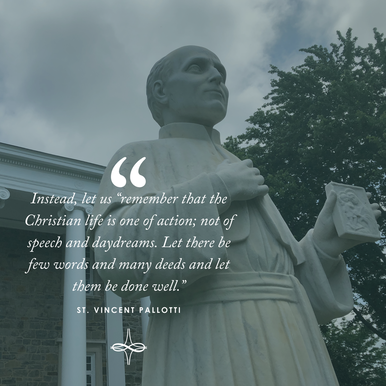
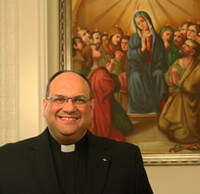
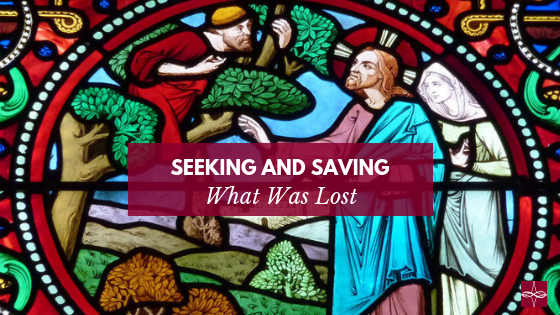


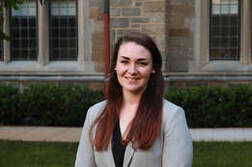




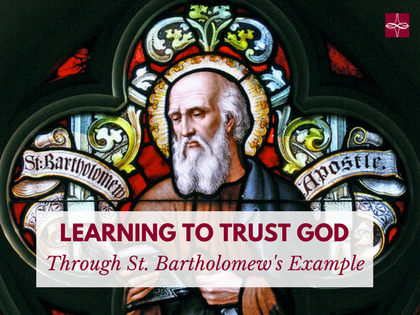



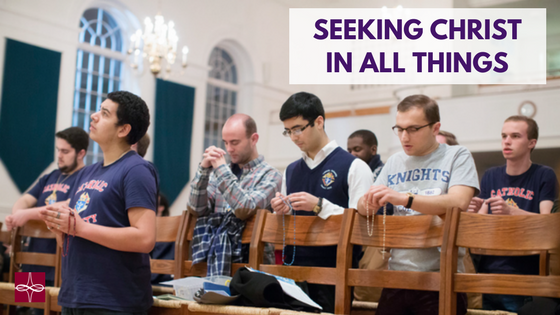
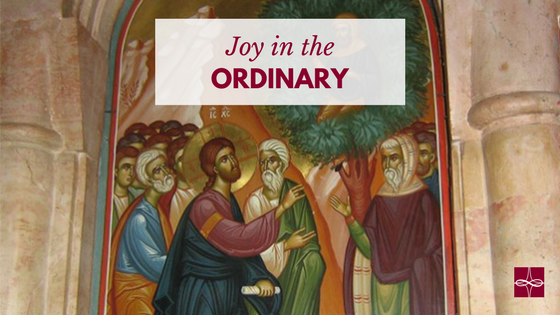



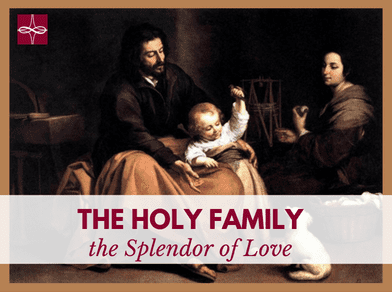
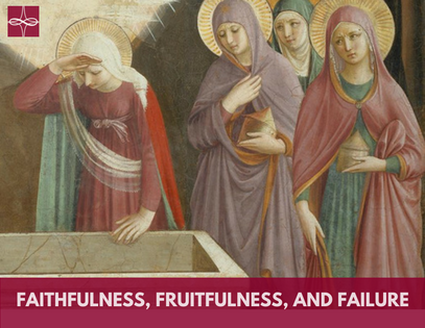

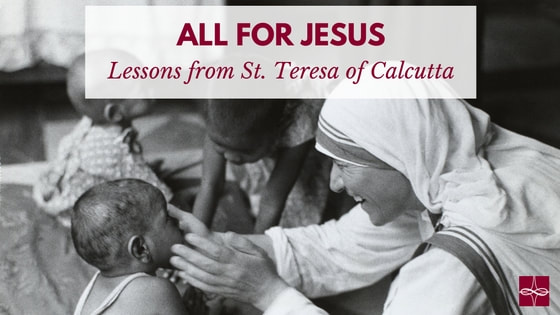
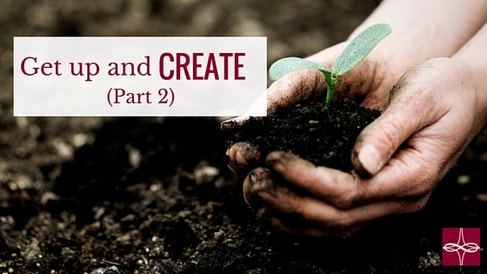



 RSS Feed
RSS Feed